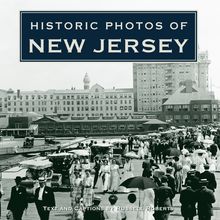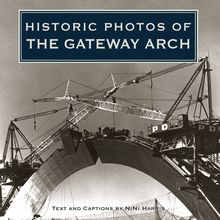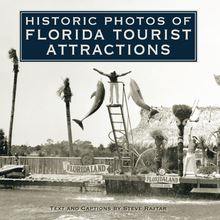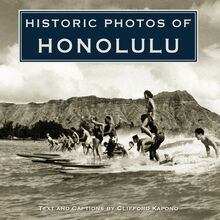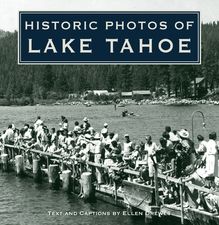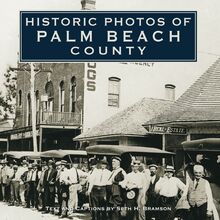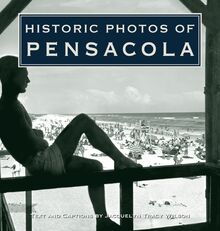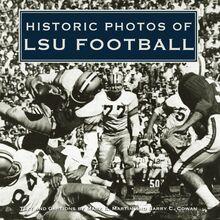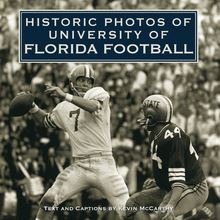-
 Univers
Univers
-
 Ebooks
Ebooks
-
 Livres audio
Livres audio
-
 Presse
Presse
-
 Podcasts
Podcasts
-
 BD
BD
-
 Documents
Documents
-
- Cours
- Révisions
- Ressources pédagogiques
- Sciences de l’éducation
- Manuels scolaires
- Langues
- Travaux de classe
- Annales de BEP
- Etudes supérieures
- Maternelle et primaire
- Fiches de lecture
- Orientation scolaire
- Méthodologie
- Corrigés de devoir
- Annales d’examens et concours
- Annales du bac
- Annales du brevet
- Rapports de stage
La lecture à portée de main
Vous pourrez modifier la taille du texte de cet ouvrage
Découvre YouScribe en t'inscrivant gratuitement
Je m'inscrisHistoric Photos of Birmingham in the 50s, 60s, and 70s , livre ebook
Découvre YouScribe en t'inscrivant gratuitement
Je m'inscrisEn savoir plus
Vous pourrez modifier la taille du texte de cet ouvrage
En savoir plus

Description
Between 1950 and 1979, Birmingham, Alabama, experienced some of the most dramatic growth and change in its history. Booming suburbs, desegregation, the fall of steel and the rise of medical and educational research, a new emphasis on the fine arts, and other changes imparted to Birmingham a radical new look over that thirty-year period.
Historic Photos of Birmingham in the 50s, 60s, and 70s highlights the changes that took place through pictures of busy shoppers, amusing advertising ploys, eager audiences, cultural achievements, towering buildings, influential citizens, new institutions, famous actors, and violent protests and demonstrations.
Nearly 200 photographs, vividly reproduced in black-and-white with captions and introductions, give a clear idea of what the Birmingham landscape and environment was like during these years. This look back is the perfect reminiscence for those who remember the era and an ideal resource for those new to the city who may not.
Sujets
Informations
| Publié par | Turner Publishing Company |
| Date de parution | 28 octobre 2010 |
| Nombre de lectures | 0 |
| EAN13 | 9781618583857 |
| Langue | English |
| Poids de l'ouvrage | 20 Mo |
Informations légales : prix de location à la page 0,1900€. Cette information est donnée uniquement à titre indicatif conformément à la législation en vigueur.
Extrait
HISTORIC PHOTOS OF
BIRMINGHAM
IN THE 50 S , 60 S , AND 70 S
T EXT AND C APTIONS BY J ESSICA L. B ARTON
Vulcan raises his torch to light the Magic City.
HISTORIC PHOTOS OF
BIRMINGHAM
IN THE 50 S , 60 S , AND 70 S
Turner Publishing Company
200 4th Avenue North Suite 950
Nashville, Tennessee 37219
(615) 255-2665
www.turnerpublishing.com
Historic Photos of Birmingham in the 50s, 60s, and 70s
Copyright 2010 Turner Publishing Company
All rights reserved.
This book or any part thereof may not be reproduced or transmitted in any form or by any means, electronic or mechanical, including photocopying, recording, or by any information storage and retrieval system, without permission in writing from the publisher.
Library of Congress Control Number: 2010932272
ISBN: 978-1-59652-752-2
Printed in China
10 11 12 13 14 15 16-0 9 8 7 6 5 4 3 2 1
C ONTENTS
A CKNOWLEDGMENTS
P REFACE
S TEEL G IANT WITH A G LASS J AW (1950-1959)
A L INE IN THE S AND (1960-1969)
O PERATION N EW B IRMINGHAM (1970-1979)
N OTES ON THE P HOTOGRAPHS
From a good vantage point on Red Mountain, the rear of South Highlands Presbyterian Church, 21 Restaurant, Temple Emanu-El, and some apartment buildings and a few houses are visible.
A CKNOWLEDGMENTS
This volume, Historic Photos of Birmingham in the 50s, 60s, and 70s , is the result of the cooperation and efforts of many individuals and organizations. It is with great thanks that we acknowledge the valuable contribution of the Birmingham Public Library and the University of Alabama at Birmingham for their generous support, along with the following individuals:
James Baggett, Birmingham Public Library Archives
Don Veasey, Birmingham Public Library Archives
Yolanda Valentin, Birmingham Public Library Archives
Gigi Gowdy, Birmingham Public Library Archives
Jason Kirby, Birmingham Public Library
Elizabeth Willauer, Birmingham Public Library
Ben Petersen, Birmingham Public Library
Timothy L. Pennycuff, University of Alabama at Birmingham Archives
Jennifer L. Beck, University of Alabama at Birmingham Archives
We also wish to acknowledge the continued support of the Birmingham Public Library Board:
Gwendolyn B. Guster Welch, President
Shanta Craig Owens, Vice-President
Samuel A. Ruemore, Jr., Parliamentarian
E. Bryding Adams
Thomas J. Adams, Jr.
Nell Allen
Gwendolyn R. Amamoo
Georgia Morgan Blair
Anthony Alann Johnson
Dora Sims
And special thanks to William A. Bell, Mayor of Birmingham
P REFACE
Look at a photograph. Is it just a pretty picture to accompany an interesting story or can it be something more? Could it be that a simple snap of a camera can capture more than what the photographer originally intended? Indeed, photographs often contain a vast amount of insight into the past, preserving far more than the original photographer may have been conscious of when he recorded the image. Jim Baggett, head archivist at the Birmingham Public Library Department of Archives and Manuscripts, agrees: Photographs are not just illustrations but historical documents that can be read for historical information.
The snapshots presented in this book contain a vast amount of knowledge about Birmingham, Alabama, during the prosperous 1950s, turbulent 1960s, and changing 1970s. With pictures, one of the most important senses, sight, is engaged. As a result, photographs can sometimes give a more complete view of history than a simple written document. The structure of society, organization of government, the reactions of people to the events happening around them, evolution of fashion trends, the marketing tactics of advertisers, the impact of entertainment, and the importance of religious observations are just a small fraction of what can be gleaned from a photograph.
Much thought was given to selecting the images that appear in this book. Historic events, famous visitors to Birmingham, average citizens, prominent Birmingham architecture, and memorable landmarks are just some of the subjects that were chosen. These photographs will introduce the reader to yesteryear of the recent past and broaden his knowledge of how Birmingham today came to be.
The book is divided into three sections. Chapter 1 covers Birmingham during the 1950s and includes billowing Sloss Furnaces, a visit with beautiful Miss Alabama, the public s race to sales at Birmingham department stores, and blockbuster movies hitting downtown theaters. Chapter 2 highlights the transformational events of the 1960s, for better or worse, such as the construction of new buildings that altered the landscape, youngsters racing in the Soap Box Derby, Birmingham honoring its veterans during Veteran s Day parades, and the turbulent protests of the civil rights movement. Chapter 3 is dedicated to the 1970s, when medical research and educational institutions emerged as key players in the city s economy, new roadways were carved into the local terrain, and the demographic move to the suburbs went mainstream.
The Birmingham Public Library Department of Archives and Manuscripts houses most of the historic photographs seen in this book. In partnership with Turner Publishing Company and the University of Alabama at Birmingham Archives, it is a great honor to present these pictures to the general public. It is our hope and desire that this book will not only entertain readers but add to their knowledge of recent city history and reinforce recognition of the vital role they play in the future of the community. The old truism still applies: those who do not learn from the past are doomed to repeat it. The history of Birmingham is not closed; it is still being written, and those who call the city home are its writers. So delve deep into each photograph, learn from them, and enjoy looking at these windows into the past.
- Jessica L. Barton
A man points to the construction of Birmingham City Hall. Completed in December 1950, by May 1951 it needed to be remodeled and repaired owing to faulty roofing. In the cornerstone is a time capsule that will be opened in 2050.
S TEEL G IANT WITH A G LASS J AW
(1950-1959)
After the Great Depression of the 1930s and the war-torn years of the 1940s, Birmingham was more than ready for peace and prosperity. World War II had helped resuscitate the local economy, which by the 1950s was booming, nevermind the fact that Birmingham s continued dependence on the coal and steel industry, and the refusal of some city leaders to take industrial risks, created a steel giant with a glass jaw, as Irving Beiman described it in the Birmingham News . The photographs in this section portray the excitement of shoppers as they visit downtown shops, activities for youngsters like racing in the Shell Oil Soap Box Derby, fashion shows on early WAFM-TV for the woman about town, and football games at Legion Field for football fans.
After the war, city leaders were also able to focus on cultural improvements. The revival of the Birmingham Symphony, the founding of the Birmingham Zoo, and the establishment of the Birmingham Museum of Art were all key cultural accomplishments undertaken during the 1950s. In addition to being the native home of famous actors, Birmingham also helped launch the careers of country singers. The city was visited by celebrities like Fess Parker, one of Walt Disney s best-liked movie stars, and Eddie Rickenbacker, the World War I flying ace and race car driver.
The poorly diversified economy did not go unheeded, and business helped lead the way in making improvements. Insurance companies along with banking became staples of the downtown Birmingham business district. Department stores, like Pizitz, Loveman s, and Woolworth s, though not economic powerhouses, helped keep the economy on a steady footing. Nothing, however, would revolutionize Birmingham like the Medical Center. Its impact had been felt for years, but it was during the 1950s that it began to become a key component in the fabric of the economy.
Segregation remained an axiom of truth unquestioned and understood during the decade, despite a growing undercurrent of discontent. Brown v. Board of Education , a 1954 landmark ruling that deemed as unconstitutional separate schools for blacks and whites, and the 1955 Montgomery Bus Boycott would ignite the Birmingham civil rights movement of the 1960s, but in the current decade the city breathed with relief and brimmed with promise. The photographs included here represent a Birmingham enjoying a period of contented growth and development.
An Eastern Air Lines four-engine propeller plane is ready for takeoff at the Birmingham Municipal Airport. The age of commercial jet travel was coming, but propeller-driven aircraft provided the flying public its wings throughout much of the 1950s.
Named after the principal stockholder, Major Edward M. Tutwiler, the Tutwiler Hotel opened in 1914. Urged by the president of the Tennessee Coal, Iron and Railroad Company to build a hotel that would attract representatives of the nation s iron and steel industry, Robert Jemison, Jr., developed the luxurious hotel to cater to these and other prominent visitors to the city.
Eddie Rickenbacker, renowned World War I ace, race-car driver, and Eastern Airlines CEO, visited Birmingham in the 1950s. During the Great War, Rickenbacker had become good friends with James Meissner, who later organized the flight industry in Birmingham.
A Sealtest delivery truck filled with Southern Dairies products and crew pose for a publicity shot. Visible in the background is Legion Field, the venue for many sporting events in Birmingham.
First Methodist Church holds the distinction of being the first Methodist congregation to be organized in Birmingham. Its first building was constructed on land donated by James Withers Sloss, one of the founders of Birmingham and Sloss Furnace creator. The building shown, made of Ohio Brownstone and featuring Romanesque architecture, is located at 530 19th North.
LaDame Laundry C
-
 Univers
Univers
-
 Ebooks
Ebooks
-
 Livres audio
Livres audio
-
 Presse
Presse
-
 Podcasts
Podcasts
-
 BD
BD
-
 Documents
Documents
-
Jeunesse
-
Littérature
-
Ressources professionnelles
-
Santé et bien-être
-
Savoirs
-
Education
-
Loisirs et hobbies
-
Art, musique et cinéma
-
Actualité et débat de société
-
Jeunesse
-
Littérature
-
Ressources professionnelles
-
Santé et bien-être
-
Savoirs
-
Education
-
Loisirs et hobbies
-
Art, musique et cinéma
-
Actualité et débat de société
-
Actualités
-
Lifestyle
-
Presse jeunesse
-
Presse professionnelle
-
Pratique
-
Presse sportive
-
Presse internationale
-
Culture & Médias
-
Action et Aventures
-
Science-fiction et Fantasy
-
Société
-
Jeunesse
-
Littérature
-
Ressources professionnelles
-
Santé et bien-être
-
Savoirs
-
Education
-
Loisirs et hobbies
-
Art, musique et cinéma
-
Actualité et débat de société
- Cours
- Révisions
- Ressources pédagogiques
- Sciences de l’éducation
- Manuels scolaires
- Langues
- Travaux de classe
- Annales de BEP
- Etudes supérieures
- Maternelle et primaire
- Fiches de lecture
- Orientation scolaire
- Méthodologie
- Corrigés de devoir
- Annales d’examens et concours
- Annales du bac
- Annales du brevet
- Rapports de stage
